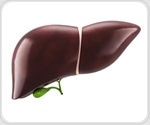
|
|
|
| |

|
|
| |
The latest gastroenterology news from News Medical |
|
|
|
| |  | | |  The gut microbiota plays a crucial role in maintaining host health and liver function. Fecal microbiota transplantation (FMT), an emerging therapeutic modality, has demonstrated promising potential in the treatment of chronic liver diseases. The gut microbiota plays a crucial role in maintaining host health and liver function. Fecal microbiota transplantation (FMT), an emerging therapeutic modality, has demonstrated promising potential in the treatment of chronic liver diseases. | | | | |  Learn how pH-sensitive dye detection supports reliable ADC internalization assays and insight into cellular uptake mechanisms. Learn how pH-sensitive dye detection supports reliable ADC internalization assays and insight into cellular uptake mechanisms. | | | | | The long term use of proton pump inhibitors (PPIs), a class of drugs widely used to treat acid reflux and ulcers, may not be linked to any increased risk of developing gastric (stomach) cancer, finds a study of Nordic health data published by The BMJ today. | |
|
|
|
|
|
|
|